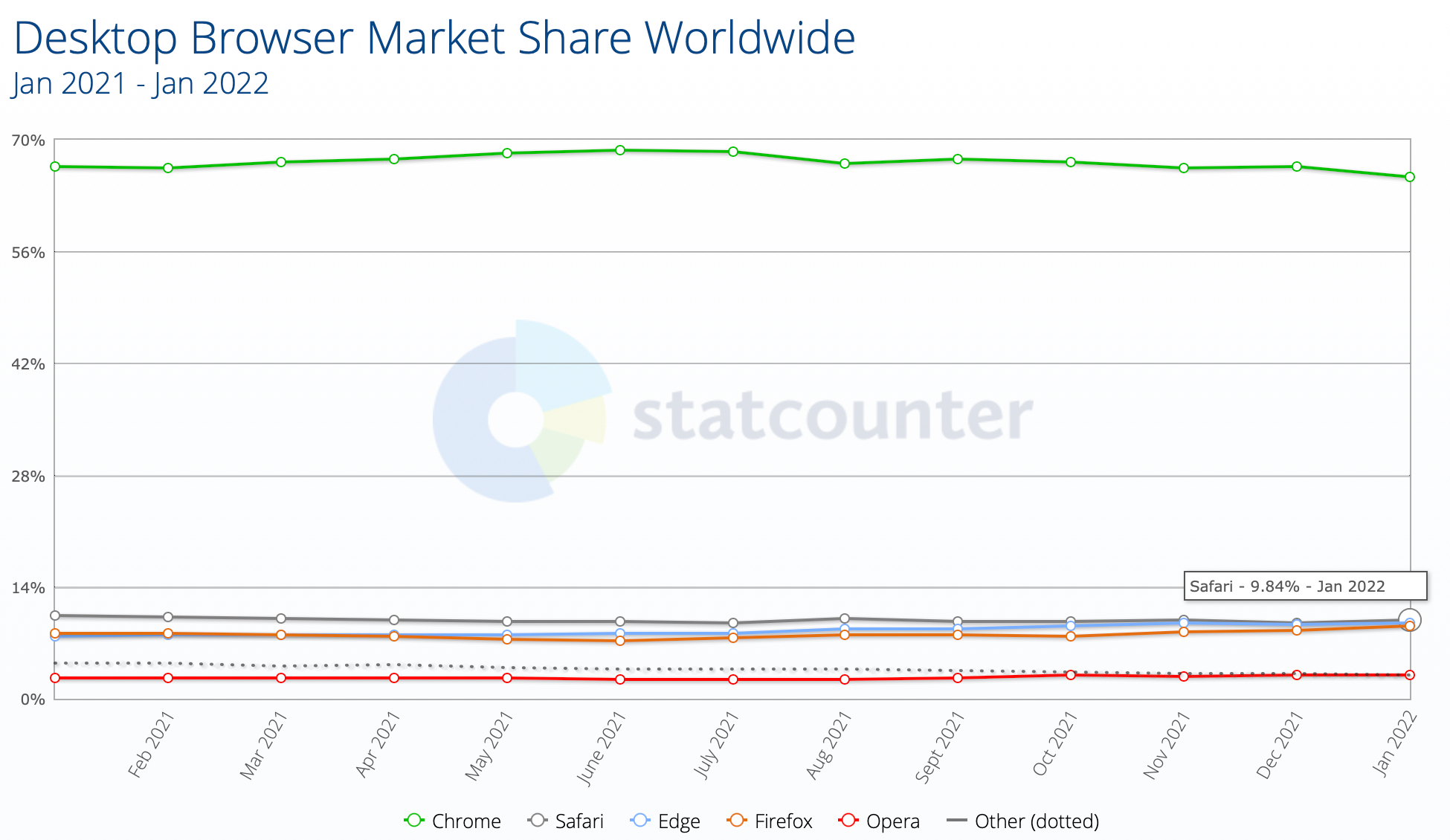
Microsoft Edge is on the verge of overtaking Safari as the world's second most popular desktop browser, web analytics service StatCounter reports (via TechRadar).
According to the data, Microsoft Edge is now used on 9.54 percent of desktops worldwide, a mere 0.3 percent behind Apple's Safari, which stands at 9.84 percent. Google Chrome continues to hold first place with an overwhelming 65.38 percent of the market. Mozilla Firefox takes fourth place with 9.18 percent.
In January 2021, Safari held a 10.38 percent market share and appears to be gradually losing users to rival browsers over time. If the trend continues, Apple is likely to slip to third or fourth place in the near future. Edge and Chrome are now both Chromium-based browsers, meaning that Chromium will likely come to dominate the top two desktop browsers.

While Edge appears to be set to overtake Safari on a global scale, in North America, Safari is in a stronger position, being used on 16.87 percent of desktops compared to Edge's 11.93 percent market share. In Europe, Edge has already surpassed Safari, taking 10.9 percent of the market compared to Safari's 9.95 percent. The data is similar in Asia, where Safari's 5.41 percent market share trails behind Edge's 7.46 percent.
Matters are different on mobile platforms, where Safari has a more secure position in second place with a 26.71 percent market share. Despite Safari being the default browser on the iPhone and iPad, Chrome still dominates both iOS and Android with a market share of 62.06 percent. StatCounter suggests that Edge's mobile presence is comparatively diminutive even though it has been downloaded 10 million times on the Google Play Store.
Safari has been met with complaints from some users in recent years over the browser's bugs, user experience, and website compatibility. Apple's Safari team recently asked for feedback amid accusations that "Safari is the worst, it's the new IE."
The problems reached fever pitch last year when Apple unveiled a substantial redesign for Safari at WWDC, which was met with widespread criticism that accused the changes of being "counterintuitive." After months of tweaking the ambitious redesign in response to feedback, Apple eventually gave up on the changes just before the public release of iOS 15, iPadOS 15, and macOS Monterey, reverting to the previous Safari design by default.
Article Link: Microsoft Edge Looks Set to Overtake Safari as World's Second Most Popular Desktop Browser

